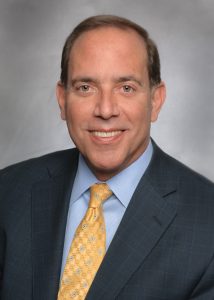DO YOUR FINANCIALS PROVE YOUR COMPANY’S WORTH IN A SALE TRANSACTION?
Robert Perry, Robert H. Perry & Associates, Incorporated
There have been several very large manned guarding companies sold to Private Equity Groups (PEG’s) over the past few years at multiples between 9 – 12 times the seller’s earnings before interest, taxes, depreciation and amortization (EBITDA), with nominal adjustments.
But the smaller companies, making up the majority of the roughly 8,000 companies in the US manned guarding market are not valued on the seller’s EBITDA when being sold to one of the seller’s larger competitors – usually the most generous of the buyers in the marketplace.
The acquisition of these smaller companies are a good source of growth for the larger PEG owned companies; in fact, the investors are demanding a series of acquisitions as a way to add shareholder value. Collectively, the very few PEG’s that have invested in the contract security industry over the past 10 years have bought over 200 privately held companies; providing the sellers the opportunity to retire and receive a well-earned reward for their many years of hard work. When these large PEG’s grow through acquisitions of smaller companies, they pay a multiple of their (the buyer’s) pro forma profit; which is usually much higher than what the seller was making before the acquisition since the buyer, in building the pro forma acquisition model, will consider the elimination of redundant costs of the combined companies after the sale.
The problem for many of these “would-be” sellers is that their companies do not have the financial systems in place to help the buyer in preparing a credible pro forma profit computation and the expenses that can be eliminated through combining the companies. These owners view the financial system only as a mechanism to file the year end taxes and not as an operating tool and especially not from the viewpoint of proving the real worth of the company when the time comes to sell.
We’re not necessarily talking about the owner needing audited year-end statements – although an audit certainly adds to the credibility of the financials. We’re talking about the owners having a series of ancillary reports and financials that correctly present the financial position of the company, which requires the proper recording of revenue and expenses. These financials will go much further than just reporting the net profits of the company; they will prove the real worth of the company by showing the specific elements of revenue and cost; important to the buyer in evaluating the merits of the acquisition. Sellers not being properly represented in the process, or trying to sell the company without any representation, usually don’t know how to present the financials; thus will sell the company for much less than it’s really worth. The company may have a very attractive gross profit, but it’s up to the seller to prove it; and proving it involves a lot more than just handing the buyer billing invoices and payroll registers for a couple of periods. The proof lies in the underlying financials that will confirm that the profit will remain at a certain sustainable level over time.
This is where we come in ….. our many years of managing transactions for seller/clients have enabled us to know exactly what the buyers are looking for and how to best present the financial information in order for our clients to receive top dollar in a sale transaction. This is how many of our seller/clients have received very attractive prices for companies that, based on historical financials, have been losing money or have been only marginally profitable.
We’ll guide the seller in presenting a meaningful gross profit line – a very important aspect of proving the worth of the company.
Although the operating expenses of the acquisition targets are scrutinized closely by the buyers, it’s the gross profit line that primarily drives the valuation. The buyer can improve on the general operating expenses through eliminating redundant costs after the acquisition, but there’s not much the buyer can do to improve on the profit at the customer site level. It can’t raise billing rates, and it can’t reduce the security officer pay and benefits without jeopardizing the relationship with the customers.
Sellers, in presenting the gross profit, should make sure all direct cost ( and only the direct cost ) relating to providing service to the customer is included in the gross profit section of the income statement, which will include: gross billing, all compensation to the site security officers (billable and non-billable), and other relates costs such as – payroll taxes, general and workers compensation insurance, uniforms, equipment furnished at the site, union dues, site supplies, hiring and employee processing expenses. If there are a lot of “cold start” accounts, the cost for some or all of the roving non-billable supervisors should also be included in the computation of gross profit.
We’ll advise on other financial statement adjustments and reports that are summarized and used to prove the worth of the company and become a part of the presentation to the buyer prospect:
- Customer Profit Report – This report will show every customer, by site, with the hours worked, gross billing, gross payroll, and any special costs that apply to the customer; such as dedicated site vehicles, special insurance, etc. A more advanced report will further show the billable and non-billable hours (vacation, holidays, training, etc.) with the associated billing and pay, as well as the overtime premium for both payroll and billings. Very important note: this initial information is used to prepare summary “gross profit statistics” only, and is not shown in detail for the presentation to the buyer prospects.
- Year-end and Interim Statements – Prepared on the accrual basis. Year-end financials prepared by an outside independent accounting firm adds credibility to the information. It’s also good to have interim statements, although not as important that the interim statements be prepared by the outside accounting firm. In order to help the buyer understand the financial picture, the statements should follow these guidelines:
- Sources of revenue and related costs should be identified to help a buyer verify the profit at the sites level, the statements will also identify the revenue according to source (i.e.; permanent accounts separate from temporary accounts, regular straight-time billing separate from overtime premium billing, and patrol and any other non-guarding service would also be a separate line item). The labor and other costs for the various sources of revenue will also be separated so the buyer can readily determine the profit by category of service (i.e.; how much it’s making on the permanent work vs. the temporary work, and how much its making on the patrol service, etc.).
- Proper cut-off of billing and expenses: A common mistake many companies make is not having a proper cut-off of billing and expenses. This especially true where a company has several billing periods available for the clients (i.e.; some on weekly, others on semi-monthly or monthly, etc.) that do not match the payroll period. When this is the case, the company should have a procedure in place to book the revenue that has been performed, but not billed, in order to get the billing in the same period as the recording of the labor for the respective service.
- Another common mistake is not properly recording advanced billings. This is more common for patrol customers than for guard customers, but in either case, if the invoice has been prepared and entered in the financial system before the service is actually rendered, the billing should be booked as advanced billings then recognized when the service is actually performed.
- Expenses below the gross profit line should be detailed since the buyer will be scrutinizing these costs. The buyer is looking for possible other costs that may be important to running the site, but may have been left out of the site level profit computation.
-
-
- Insurance – insurance expense should be separated to show the amounts for workers compensation, general liability, employee hospitalization and health, etc.
- Class of Compensation – compensation should be separated to show the amounts for non-billable roving supervisors, executives, clerical personnel, dispatch personnel and any other class of labor. The more detail, the better it will help the buyer understand what it takes to run the business.
- Vehicle Cost – to the extent it can be easily identified, vehicle cost should be separated by roving supervisors and executives.
-
For over 25 years we have successfully completed over 250 sell-side engagements for security companies located in 8 countries and having revenues between $2M – $200M.
The information in this article does not render legal, accounting or tax advice. Neither Robert H. Perry & Associates, Incorporated nor its employee, offer such services, and accordingly assume no liability whatsoever in connection with the use of the information contained herein. If legal, accounting, or tax advice is required, the services of a competent professional should be obtained.
© All rights reserved. May not be reproduced without permission.

 Shaun Kelly joined Tolman & Wiker Insurance Services in 2005. He specializes in all lines of property and casualty insurance for industries including contract security firms, agriculture, construction, oil and gas. Shaun received a BS in Business Administration with a major in Finance from California State University in Fresno, California. He is an active member of several industry associations, including the Association CALSAGA, the Kern County Builders Exchange and the Independent Insurance Agents of Kern County. Shaun can be reached at 661-616-4700 or skelly@tolmanandwiker.com.
Shaun Kelly joined Tolman & Wiker Insurance Services in 2005. He specializes in all lines of property and casualty insurance for industries including contract security firms, agriculture, construction, oil and gas. Shaun received a BS in Business Administration with a major in Finance from California State University in Fresno, California. He is an active member of several industry associations, including the Association CALSAGA, the Kern County Builders Exchange and the Independent Insurance Agents of Kern County. Shaun can be reached at 661-616-4700 or skelly@tolmanandwiker.com.
